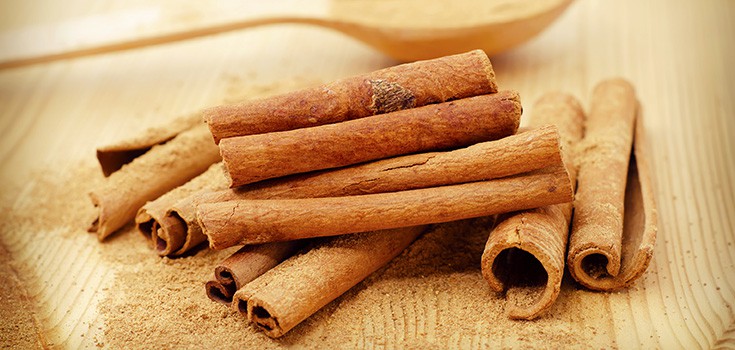Boost Cinnamon Intake to Ward off Alzheimer’s Disease

It’s good on apples and sprinkled on toast; it’s used in a variety of recipes for its sweet and subtly spicy flavor. But, it’s far more than a kitchen spice—it’s a natural healer and may even be able to help prevent and reverse Alzheimer’s disease. What we’re talking about is cinnamon.
Cinnamon is the inner bark of a tropical evergreen tree native to India. It is grown in southeast Asia and has been treasured around the globe for thousands of years. In Egypt it was priced as a medicine and flavoring agent. In Ancient Rome it was more valuable than silver. Now, science is discovering just how valuable this under-appreciated spice truly is.
According to recent research from Tel Aviv University, cinnamon bark can inhibit the compounds found in the plaque formations of Alzheimer’s patient’s’ brains. These filaments are actually “disassembled and eliminated” when cinnamon is taken with food or as a supplement.
And this isn’t the first study to look at cinnamon’s effects on the brain. Two studies at Wheeling Jesuit University found that the scent and flavor of cinnamon affected attention, memory, and other intellectual qualities nearly instantly.
The studies used cinnamon gum (though cinnamon itself is the best source of cinnamon scent and flavor). When tested against other scents (including jasmine, peppermint, and cherry), only cinnamon was shown to boost memory scores.
Cinnamon extract resolved AD associate reduced longevity, helped recover locomotion defects and completely abolished tetrameric species of plaque in the brain.
Interestingly, many studies on the benefits of cinnamon are done using simply grocery-store spice-rack varieties. You don’t need a high dollar version of the spice to make it worthwhile. Add some to your daily meals or beverages.
Around 1,000 mg is suggested as the optimal amount for positive effects on blood sugar and health, though numerous studies have used anywhere from 1-6 grams on real people. To learn more about what this amazing spice has to offer, check out the other health benefits of cinnamon.
Additional Sources:

I use to soak cinnamon in water over night and drink the water mixed with fresh lime juice. Can you tell me whether soaking or boiling cinnamon sticks erradicate its fine properties?
You might want to change the photo, as that is obviously cassia bark, not cinnamon, and cassia often contains high amounts of the toxin coumarin.
Real cinnamon, the one with the health benefits, is much lighter in colour, with multiple bark rolls within as single quill or quilling.
Indus organics is a good place to start to find it.
I need more of this. I made a tea with the sticks.